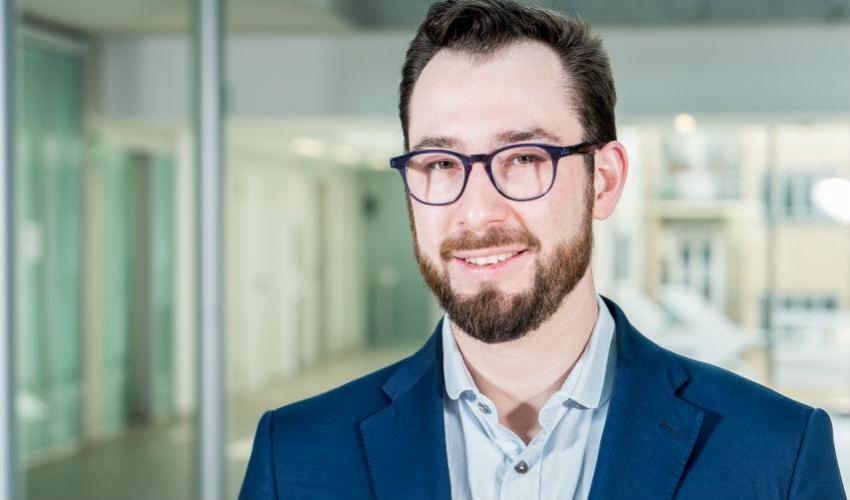
Dirk Hovy, the Scientist that Connects Demography and Linguistics
ASSOCIATE PROFESSOR AT THE DEPARTMENT OF MARKETING, HOVY'S FIELD IS COMPUTATIONAL LINGUISTICS. I'M FASCINATED BY THE IDEA OF TEACHING COMPUTERS TO UNDERSTAND HOW LANGUAGE WORKS, HE SAYSA former linguist that uses large-scale statistical analyses to detect the interaction between language and demographic features, Dirk Hovy is the latest arrival at the Department of Marketing, coming from the University of Copenhagen. “I had not considered joining a university of international standing in business and economics”, Hovy says. “But when I heard about the new Master of Science in Data Science and Business Analytics, Bocconi appeared on my radar. Now I am excited to be part of a new program and to help get it off the ground”. At Bocconi, the incoming associate professor is teaching Social Media Marketing this spring. With the start of the Data Science master, he will also teach Natural Language Processing, introducing students to how computers deal with language. He loves cooking (“equal parts scientific experiment and sensual experience”), has a trainer’s license in judo, blogs at dirkhovy.com, and tweets at @dirk_hovy.
The discovery of Natural Language Processing
Dirk Hovy graduated in 2006 with a linguistics degree at the University of Marburg, in his native Germany. After a few years, he became fed up with the seeming arbitrariness of linguistic theory. “By chance, I found out about Natural Language Processing. It was exactly what I always wanted to do, even though I didn’t consciously know about it. I was fascinated by the idea of teaching computers to understand how language works”. Hovy thus switched from linguistics to computer science. “It turns out that things are not that easy, though”, he adds, laughing. While the big high-tech firms started recruiting his friends, he took a different path in his PhD at the University of Southern California, where he worked as research assistant at the Information Sciences Institute. “I wanted to stay in academia to answer the big questions”.
After a postdoc at the University of Copenhagen’s Center for Language Technology, Dirk Hovy became Associate professor in the computer science department at the same university. That’s where he developed his interest in uncovering the social dimensions of language. “I was interested in the interplay between computers and human language. Language contains embedded social information, such as gender or age, and computers were not very good at dealing with these language variations. They were not able to tell if you were black or white, young or old, so I asked myself: can we teach computers to overcome this limitation?”. In two other streams of research, Hovy uses computers and machine learning to gain insights into identifying the social factors most relevant to driving variation in language; and the ethical implications of biased algorithms.
Machine learning and social sciences
Hovy gradually became interested in working with social scientists, from psychologists to marketing scholars. “They are the people who ask the really interesting questions about our society. Language is the binding factor. Whenever there is text as a source of information and we are trying to learn something from it, that’s where Natural Language Processing fits in. It can help us understand the buying behavior of consumers, the hiring decisions of a firm, or the popularity of a startup”.
The field of computation linguistics has changed very quickly. Computing power has dramatically increased, as have the sizes of data sets. In the meantime, algorithms have become more and more complex. “Today, computers are very good at predicting if you are a man or a woman, or how old you are, based on how you use language. In fact, by looking at your Twitter profile, we can determine where you are from, within a margin of error of 10 kilometers”. Right now, Professor Hovy is interested in how we can make use of machine learning to answer the important questions posed by social sciences. “This is a great challenge. To model complex phenomena, we need complex models”.
Find out more
Adrian Benton, Margaret Mitchell, Dirk Hovy, Multitask Learning for Mental Health Conditions with Limited Social Media Data, in Proceedings of EACL, 2017.
Dirk Hovy, Shannon Spruit, The Social Impact of Natural Language Processing, in Proceedings of ACL short, 2016.
Dirk Hovy, Demographic Factors Improve Classification Performance, in Proceedings of ACL long, 2015.
Dirk Hovy, Taylor Berg-Kirkpatrick, Ashish Vaswani, Eduard Hovy, Learning Whom to Trust with MACE, in Proceedings of NAACL HLT, 2013.
by Claudio Todesco
